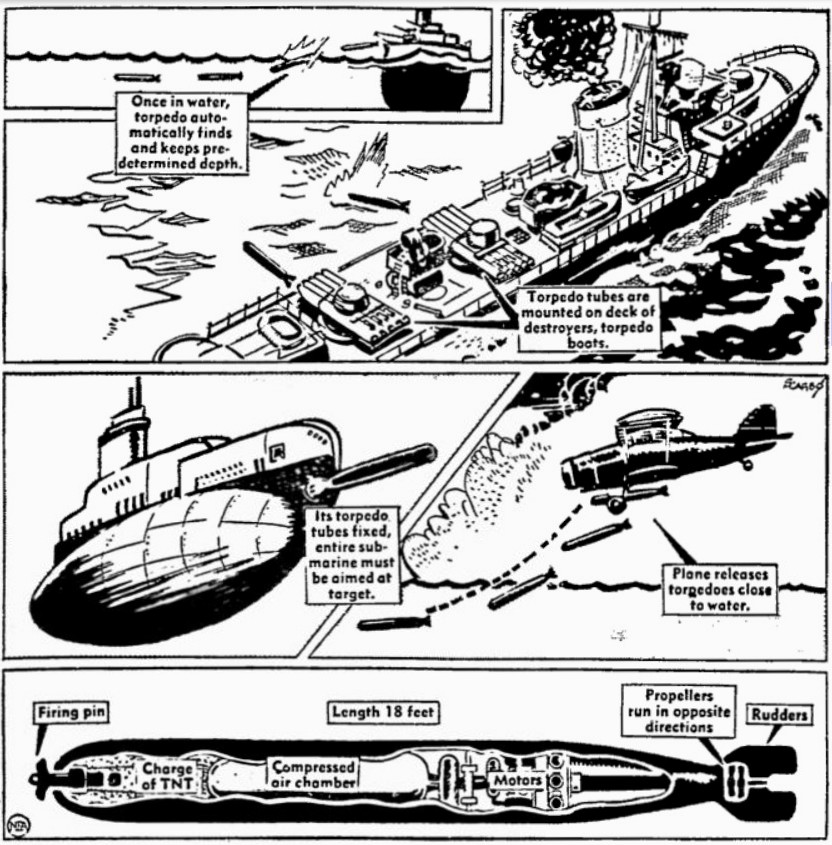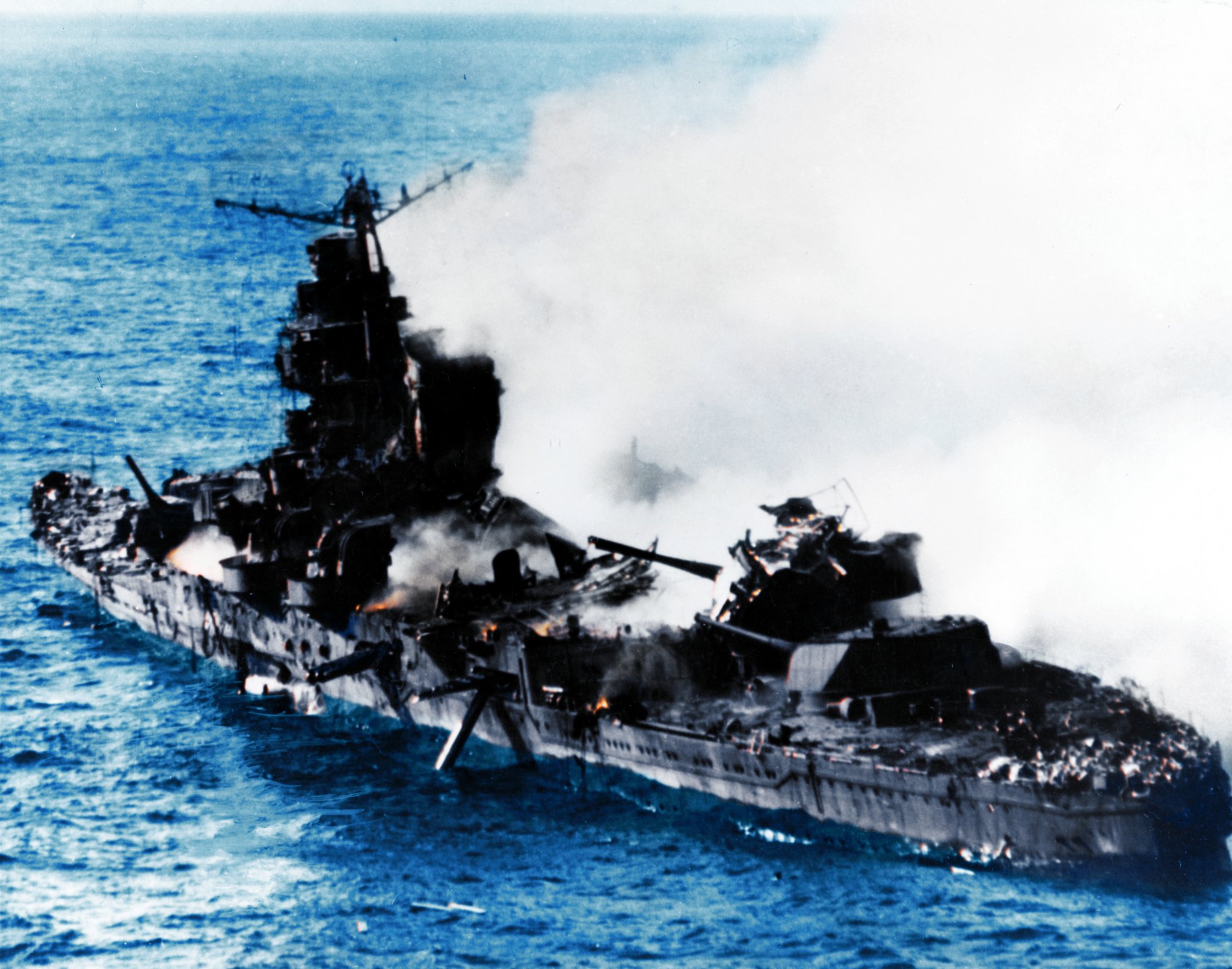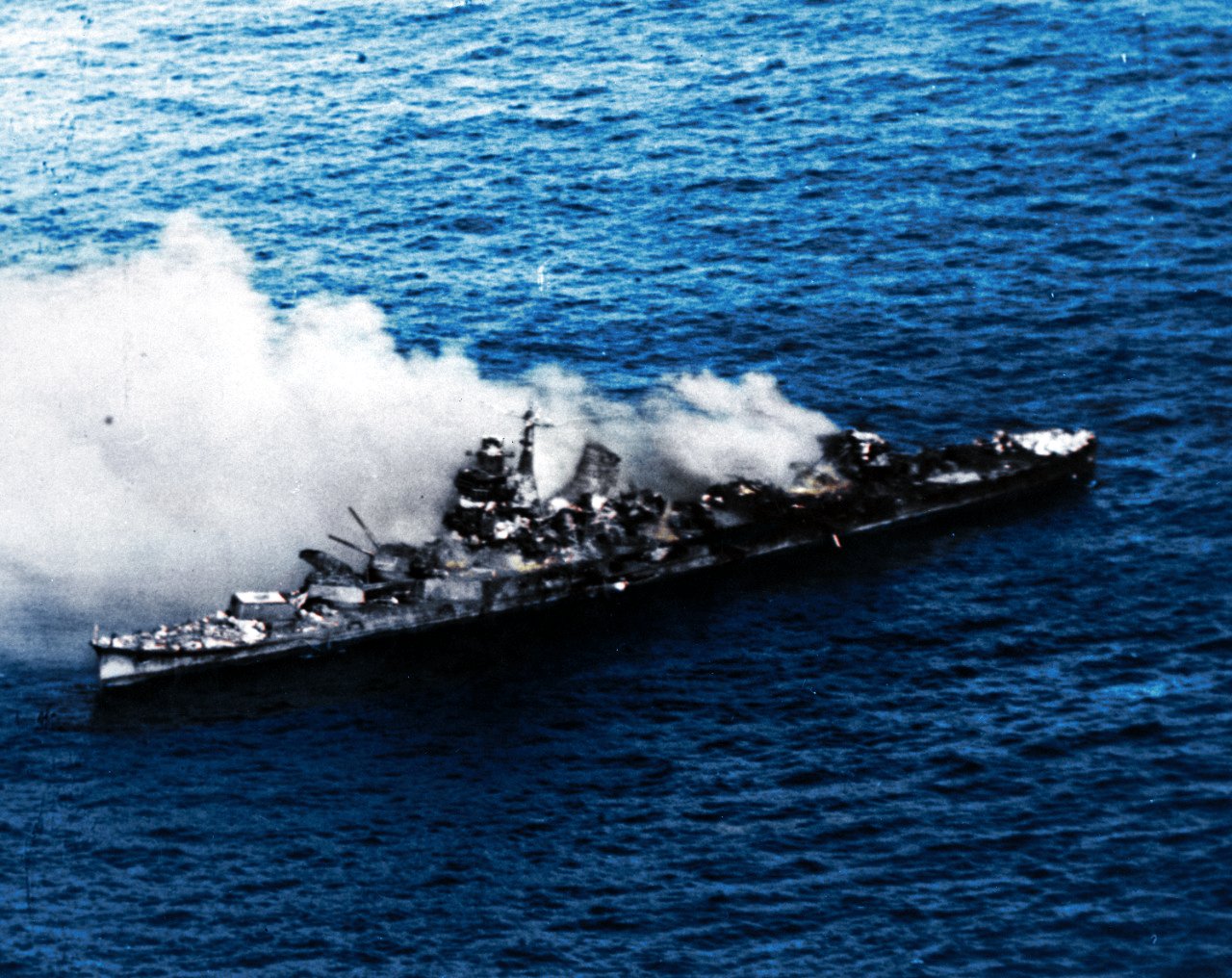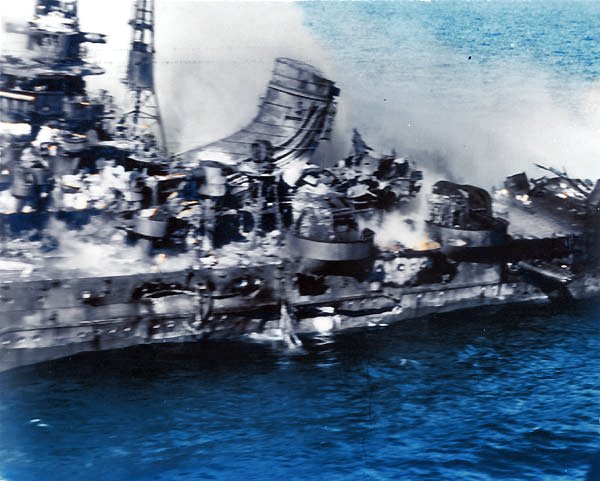Main airpower our main weapon, Seversky appeals
Roosevelt and Churchill advised to shift emphasis from navies and channel major part of war effort to preparing aerial assault
By Major Alexander P. de Seversky, United Press aviation analyst
In the following dispatch, Maj. Seversky advocates reorientation of United Nations strategy to make aviation the chief weapon against the Axis powers and urges fullest use of the British Isles as an advance base for aerial assaults on Germany.
One of the vital subjects which President Roosevelt and his eminent guest, Prime Minister Winston Churchill, ought to review at this time is their previous emphasis on sea power as the instrument of victory over the Axis.
In the light of recent events in the Pacific and the Mediterranean, as well as the semi-official naval admission that the battleship has dropped out of the strategic picture, it is conceivable that the two statesmen will in fact reconsider their attitudes.
The writer is deeply convinced that nothing more momentous could result from this historic meeting in Washington than a clear reorientation of United Nations strategy, around the air weapon as the main element.
The faith of both Mr. Roosevelt and Mr. Churchill in sea power in the initial stages of the war was only natural. Both men were steeped in naval tradition, their thinking on war shaped by naval training. Our President served as Assistant Secretary of the Navy in the First World War. The British Prime Minister served as First Lord of the Admiralty in both world wars.
Airpower proves itself
When obliged to decide between the advice of airmen and of naval men, they have tended to favor the naval view – if only because they are better-equipped to follow the naval logic.
All the war events since that time, however, have tended to undermine their assumption that sea power is the deciding power in the great global struggle. Those events have been climaxed in recent weeks by the battles of Coral Sea, Midway Island, the Aleutians and the Mediterranean, in all of which naval forces served largely and at times exclusively as inert targets for airpower on both sides.
There is reason to hope that our leaders have begun to recognize that the conduct of the war heretofore has been artificially complicated by habitual adherence to orthodox strategic concepts. Combat has been accepted on the enemies’ terms on a great number of widely scattered battlefields, along vast lines of communications.
Tragic delay cited
Airpower from the beginning offered the possibility of a simple solution, namely the destruction of the heart and vitals of the Axis nations in their own homelands by direct attack from the skies. Had this possibility been visualized and acted upon with revolutionary boldness, we would have prepared ourselves for that job and a final decision would have been within our grasp by this time.
Despite the tragic delay, we should switch the direction of the United Nations’ war effort immediately, while its momentum is not yet too great and a change, of course, is still possible. The present Roosevelt-Churchill meeting, coming as it does after the clear-cut demonstration of airpower ascendancy, raises the hope that such a switch in course may eventualize.
Procedure outlined
Once airpower is recognized officially as the backbone of our strategy, so that direct assault on the citadels of the enemy becomes the main objective, the procedure becomes clear. It can be roughly outlined as follows:
-
We must immediately channel the major portion of our materials, productive resources and manpower toward forging the weapons of strategic aerial assault.
-
We must provide an audacious answer to the growing success of Hitler’s U-boat operations by giving our transport wings, lifting our lines of supply into the air. We would thus leave the Nazi submarines to roam aimlessly in deserted oceans.
-
Meanwhile, in the transition period, we must hold our defensive positions on land and at sea, utilizing our available airpower to hold the enemy in check everywhere, harassing and weakening him without letup.
-
Finally, we must take the fullest advantage of the formidable strategic United Nations’ asset represented by the British Isles as a powerful advance base for immediate aerial assault on Germany.
There has been heated discussion as to whether we should strike first at Japan or at Germany. Unfortunately, it is not a matter of free choice. On account of our backward view of the air weapon in the past, we find ourselves unable to strike at Japan effectively in mass assaults. The range of our whole air equipment is inadequate for the purpose – at least as long as Russia denies us the use of Siberian bases.
Must aim at Japan
Our four-engined heavy bombardment aviation is gaining in numbers and momentum. We must use them to the maximum where they can do most good, and that happens to be from the British Isles. But not a moment must be lost in enlarging the range of our airpower until Japan can be yanked within the direct striking range of North America.
When the new long-range airpower is available, it will of course also serve as the knockout weapon against Germany. In considering the strategy and tactics of eliminating Germany by means of aerial assaults, this should be remembered: Air strategists normally consider it impossible to hold an advance base when it is closer to the enemy than it is to its own primary base.
Britain is good base
Great Britain, viewed as an advance base for the United Nations, provides the only important exception to this principle. Although dependent on overseas sources for basic materials, it does have a tremendous industrial potential and great manpower. That helps to balance the enemy advantage of operating from a primary base. The result is that the British Isles offer an ideal base for aerial attack on Germany at the present time, in the interim stage before the emergence of true long-range airpower.
Even later, when long-range bombers to strike at the German heart directly from Newfoundland and other North American bases will be available, the British Islands may be converted into a terrific fighter command center.
Night bombing not final
That would not only provide impregnable defense for the islands, but also impregnable fighter convoys for the bombardment aviation from overseas in a combined drive on Hitler’s stronghold.
It is possible, as some claim, that Germany may be weakened to the point of collapse in the present stage, if all available airpower is efficiently utilized. But that expectation must not be permitted to act as a brake on long-view planning and construction for a strategy of ultimate knockout.
A realistic view requires that we recognize that night bombardment, even with great aerial armadas, is a preliminary rather than the final stage of air offensive. It can be expected to soften Germany.
Advantages cumulative
Gradually, as we accumulate more and stronger aerial equipment, the operations must be transferred to daylight hours – in offensive action that accepts combat boldly, prepared to pay a reasonable price in losses. Only that kind of combat can give us scientific precision bombing of the vital organs of the enemy’s war-making mechanism.
Only the start of such true air combat is difficult. As the enemy’s defenses and resistance are undermined, the advantages of a superior attacker become cumulative. They gather momentum and finally precipitate the victim’s collapse. Such is the air offensive against Germany which should be held in view as the real purpose of our strategy for victory.





